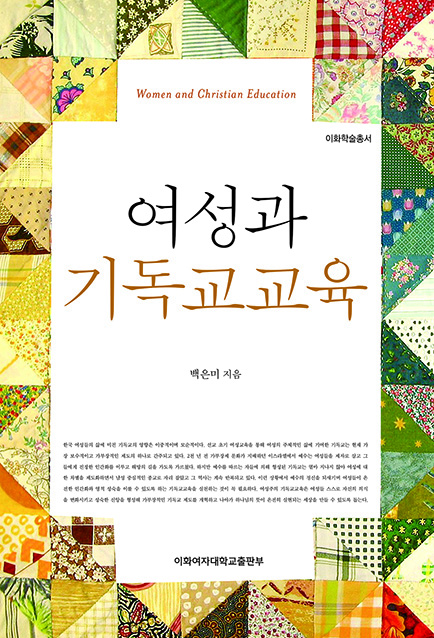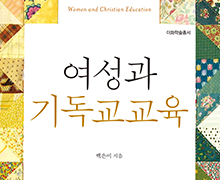본문
Women and Christian Education
by Prof. Eun Mi Paik (empaik@ewha.ac.kr)
Department of Christian Studies

This book systematically studies the theory and practice of Christian education for women from a feminist perspective. It addresses the foundational questions concerning the irony of how Korean Christianity has persistently maintained patriarchal beliefs and systems, despite the fact Christianity made significant contributions to the education and humanization of Korean women since the early period of mission. In androcentric churches, many women have limited their faith to the private sphere of families and churches, and have uncritically internalized patriarchal beliefs and values. This book explores a feminist pedagogy that can empower women to gain new knowledge and values by encouraging women to share their experiences and wisdom to others in order to transform their own lives, faith communities, and society. The author underlines the public responsibility of women in overcoming the fundamental crises of both the church and society, as well as continuing their path to full humanization and spiritual maturation.
This book is divided into three sections. Part one, entitled “Feminist Christian Education,” presents the theoretical foundations of feminist Christian education, based on a new understanding of God, human beings, world, and the Bible. In the first chapter, the author presents the historical background and main theorists of feminist Christian education, and critically reviews the traditional theories of Christian education from a feminist perspective. Chapter two discusses the purpose, content, method, subject, and context of feminist Christian education. Chapter three critically examines the theories of psychological development and faith development, and searches for an alternative understanding of women’s spiritual growth in holistic ways.
The second part of this book, “Women’s Life Cycle and Christian Education,” explores the developmental characteristics and educational tasks for each period of a woman’s life, from adolescence to late adulthood. Chapter four discusses the holistic developments of adolescence and educational tasks, focusing primarily on openness and trust. Chapter five describes the creative characteristics of early adulthood and education focused on relationship and reflection. Chapter six discusses the transitional characteristics of middle adulthood and educational tasks, focusing on responsibility and care. Chapter seven explores the integrative tasks of late adulthood and education, specifically focused on wisdom and grace.
Part three, “Methodology of Feminist Christian Education,” proposes three educational methods that women could practice in their daily lives and faith community. Chapter eight examines the history and nature of storytelling, and introduces educational methods that can help women reconstruct their experiences and knowledge through storytelling. Chapter nine explores the holistic understanding of spirituality and spiritual disciplines, and suggests spiritual disciplines, such as meditation, solitude, simplicity, salim, traditioning, and spiritual midwife. Chapter ten critically examines traditional Christian liturgies that have excluded the experiences and participation of women, and discusses the educational dimensions and practices of feminist liturgy.
* Related book
Women and Christian Education was published at Ewha Womans University Press on 2014, 360pages
